Editor’s Note: When Melissa and Jody Copp noticed their firstborn wasn’t hitting his milestones as an infant, the concerned parents took him to a neurologist. Although the test results came back normal, the Copps knew something wasn’t right. With so many unanswered questions, the couple began their quest for a diagnosis. For the next several years, they spent countless hours and dollars on visits with various specialists, none of which were able to pinpoint the cause of Calan’s condition. Wheel:Life met up with Melissa Copp at Abilities Expo Dallas where she talked to us about her family's financial and emotional struggles, obtaining an accessible home with the help of HGTV, and launching their nonprofit, the Raising Wheels Foundation.
Our two sons, Calan and Lawson, were born with a life-threatening condition that took seven years to diagnose. That journey took us on such highs and lows that were almost impossible to keep up with. It all started when we noticed signs of delayed development in our oldest son, Calan, who is 11 now. As an infant, he couldn't lift his head and wasn’t developing any muscle tone. We took him to a neurologist initially. Since then, we've seen around 22 different specialists. While we were searching for a diagnosis, we spent every third or fourth day in a doctor's office. That's how we lived our lives for seven years.
It was a very difficult time, but my husband and I decided we wanted a second child. Even though Calan was still undiagnosed, and we didn’t know whether the cause of his condition was spontaneous or genetic, we knew that whatever happened would be a blessing.
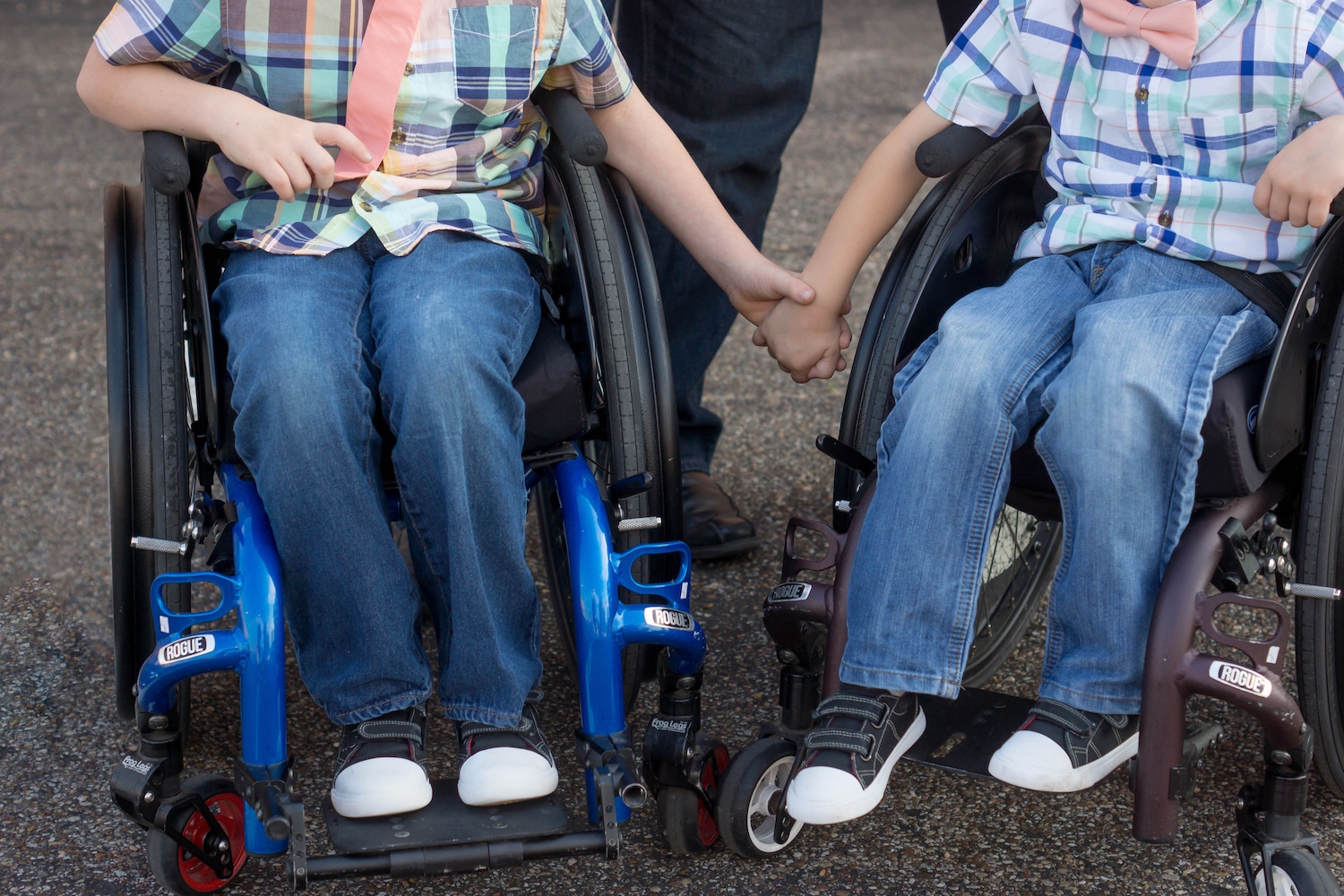
When we had our second child, Lawson, almost four years later, we soon realized we were living déjà vu. He was experiencing the same symptoms as Calan: muscle weakness, colic, and delayed development.
When the boys were finally diagnosed, we found out they have a mutation of the PNPT1 gene. This mutation affects the mitochondria, which are responsible for the energy production of cells in the entire body. The mitochondria help the body's systems work together. We also discovered that both my husband and I are carriers. By getting together, we hit the genetic lottery, and this mutation was passed on to both of our children. We later found out that there was only a .05% chance that our second child would be positive for the same genetic mutation and would also show symptoms.
We only know of around 16 confirmed cases in the world of the same genetic mutation. There are three cases in the United States, two of which are our boys. Calan and Lawson are also one of only two sets of siblings in the world.
With this condition, the boys can move their bodies, but their brain doesn't send the right signals to their muscles. There's no medicinal cure or treatment. Instead, they do therapy — physical, occupational, and speech — to build muscle memory. That's how they learn what their bodies can do. We intervened at six months old and started therapy, which has saved their lives.
At one point, we got to a stage where we had run out of local resources, but we knew there had to be something else out there. After researching online, we found the Abilities Expo in Houston, Texas. We started attending in 2016, and we have found almost everything we're using now in regard to resources for equipment there.
One of the resources I came across was the Disability Funding Guide. I met the author, Tammy Simmons, and when we sat down together, I told her about my next big idea — a 100% accessible home.
I knew it was going to be a mountain of a task, but I left the expo with confidence about what my goal was and how I was going to obtain it. I didn't know what the steps would be and which direction it would take me, but I knew it would be very hard. Some days, I wanted to give up, but I knew it was something I had to do for my boys.
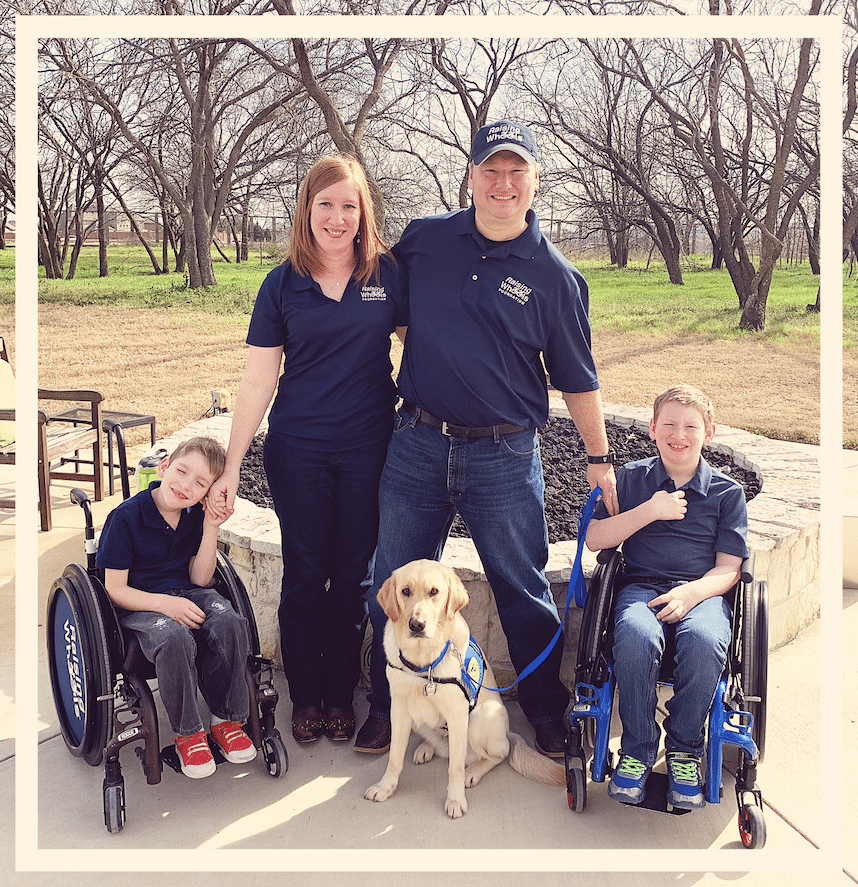
One day, it's vivid in my memory, I saw my boys looking out the window at our former home wanting to go outside, but they couldn't. That has stuck with me for the entire journey because I never want them to wish for something; I want them to be able to do it. When I left the Abilities Expo that day, I started the journey for our accessible home.
As we looked for funding, we were constantly coming up short. We wanted a 100% accessible home because our sons deserve nothing less. I decided to contact Chip and Joanna Gaines and their Magnolia Foundation because their show, Fixer Upper, was up and coming on HGTV. I knew if anybody would be able to help us, it was them if they just heard our story. After a year of trying to contact them, I received a phone call in which their PR rep told me they couldn't help. I kept that voicemail as motivation, and we continued doing what we could on our own.
A year later, I reassessed. We had worked hard on the project, and I wanted to keep going and see what other options there were. In a leap of faith, we had sold our home full of barriers and moved into a small apartment. I contacted Magnolia again to see if they had set up a nonprofit for a possible grant to obtain a piece of equipment we were hoping to purchase that would help us get better access inside the home. Low and behold, I got a phone call back from the executive director of Magnolia Foundation telling me he loved our story and how we’d worked so hard to try to get access for our boys. He couldn’t promise anything, but he wanted to meet us.
We met inside the house we had been looking at. It was a shell with nothing inside and no electricity, water, sewage, heat, or air conditioning. We talked with the executive director for more than an hour there. But after that, we didn't hear from Magnolia for over three months. I tried to stay positive. I wanted to keep the momentum going forward. My husband was more realistic and wanted to move on, but I knew something had to happen.
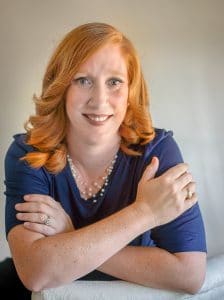
As a matter of fact, we had recently met with our primary specialist in Houston who told us we needed to move closer to the city because of the level of care needed for the boys. She said we’d be having appointments every three months, and a one-way trip from Waco to Houston takes about three and a half hours. Secretly, we began looking for jobs and homes in College Station, about halfway between Waco and Houston. Neither of us wanted to move to Houston, and since Jody and I had both attended Texas A&M University in College Station, this seemed to be a great fit for us and would get us closer to our specialists while being in a smaller city we felt more comfortable in.
Four months after meeting with the executive director of Magnolia Foundation, we got the phone call that changed our lives forever. It was the call I'd been waiting for. He said he needed to meet with us urgently. In the courtyard of our apartment complex, he told us we were not only getting the grant for the piece of equipment we requested but that they had also connected with Tim Tebow who wanted to help. They were going to renovate the entire house we had been looking at to be 100% wheelchair accessible, and they had saved an episode in season five of Fixer Upper specifically for this project.
The house had been on the market for seven years prior because it was just a shell. The owners at the time had gutted it and decided to leave it as a project for later. To a family with two boys who live life on wheels, it was a gold mine. We could turn it into anything, but it took almost two years of talking with and convincing the owners of our need as they really weren’t in a hurry to sell. I finally wrote a personal letter about how much the property would mean to us and change our lives as a family. Convinced by the passion of the letter and the dedication of our family to each other, the owners agreed to sell the property to us and hold it for us when we were ready. Since we had planned to take on this project previously on our own, we had already hired an architect to draw the plans we wanted. When Magnolia, Chip and Joanna, and Tim took over the project, they had all of the desired parts in place because we had already done the work. It was perfect timing — God's timing — and we pinch ourselves still to this day. It had to have been on TV for me to know it was real.
We were lucky that the Magnolia team was extremely proactive about wanting to create a fully functional home for Calan and Lawson. They had us make a wish list, and they included everything we asked for in the home. My favorite elements are those that bring the boys the most function and joy.
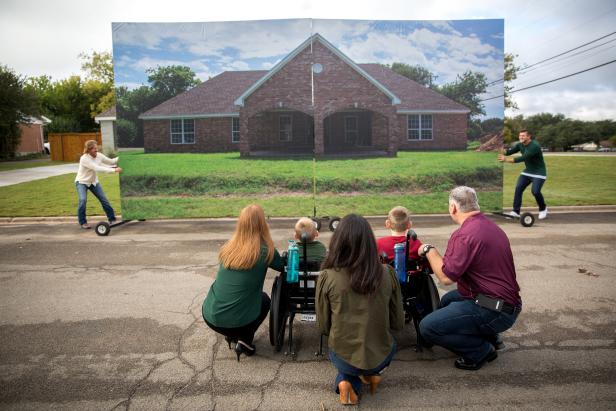
For me, it starts with the flooring. We researched options for several years and found that luxury vinyl tile is one of the most wheelchair-friendly floorings. Also, from room to room, we have no thresholds. They installed grab bars throughout the home so the boys can pull up and hold on because their play areas are on the wall rather than the floor. On the walls, there are areas for them to build with their LEGO sets, cork boards to display their art, and metallic panels to play magnetic games while standing and building muscle tone.
The bathroom is one of our favorite rooms because it's split into two spaces: a caregiver room, and a washroom. The washroom is cool because not only are there wheelchair accessible sinks, but the mirrors also tilt down.
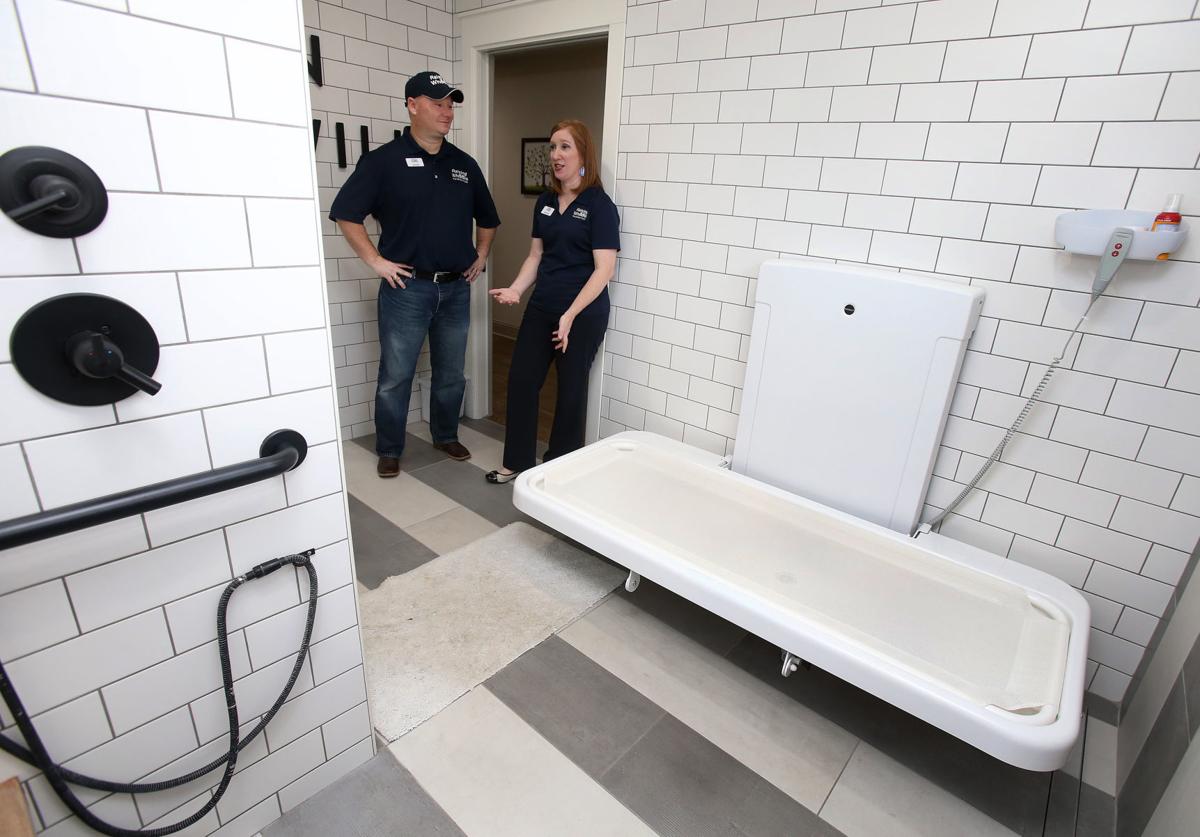
The door leading to the backyard opens up with the press of a button like you'd see at a commercial retail store. Chip and Joanna asked us to research and find these types of products for the home that are actually reasonably priced.
Most of the home is free of anything on the floor. There are no rugs. The boys have no furniture in their rooms other than their beds because a dresser is built into the closet, giving them more space to play and move around. The light switches and electrical outlets are at their level so they can reach them. All of these things seem little, but they make a world of difference. We couldn't be more grateful. We call our home Hope because we never lost hope that we would one day have a fully accessible home.
After the episode aired in January of 2018, we connected with other families with the same diagnosis. They found us. Without the show, we wouldn't have known that we were not the only ones out there. Many blessings took place after Fixer Upper. Not only do we have our accessible home, but we now have a larger family and thankfully, don’t feel so isolated anymore. That's one of the feelings we couldn't shake. It was amazing to find out that there were other children, some older than our boys, living a full life.
The first few weeks in the house were magical. We were making memories we never thought would be possible. The boys were running down the hallways with their posterior walkers, turning on faucets on their own, and playing in the backyard just like I had envisioned the day I saw them looking out the window. That joy turned into the desire to give back. The day the Fixer Upper episode aired, Chip Gaines launched a campaign online to ask people to help us with our mortgage. To our amazement, it was completely paid off within two hours by the fans. We will never be able to repay them, so we decided to live life to the fullest for the fans, Chip and Joanna, and Tim Tebow. We also wanted to give back by launching a nonprofit that focuses on assisting families like ours. We felt so isolated and desolate on our journey, and we don't want anyone else to experience that.
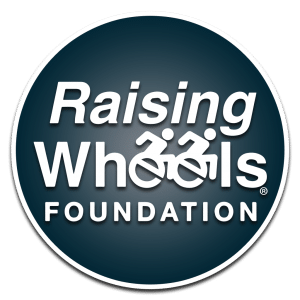 Our 501(c)(3) nonprofit, the Raising Wheels Foundation, was launched in July of 2018, a few months after our episode of Fixer Upper aired. Our mission is to assist families who are raising differently abled children to become more empowered and enabled through accessibility. Our first year was amazing. We're in our second year now, and we've already doubled our grants. We're only going to get bigger as more of the public becomes aware of us.
Our 501(c)(3) nonprofit, the Raising Wheels Foundation, was launched in July of 2018, a few months after our episode of Fixer Upper aired. Our mission is to assist families who are raising differently abled children to become more empowered and enabled through accessibility. Our first year was amazing. We're in our second year now, and we've already doubled our grants. We're only going to get bigger as more of the public becomes aware of us.
We focus on three initiatives. The first one emphasizes education and awareness of the need for better accessibility. We educate the public as well as the families needing resources. The public needs to be more aware of what accessibility truly means. It's different for everyone depending on their mobility type, but we whole-heartedly believe that if a world is built for wheelchairs, it's built for everybody. You work with your most differently abled, and you go from there.
As part of this initiative, we do awareness campaigns about how fun life is on wheels. We launched our awareness calendar of the kids we have impacted and photographed them doing their favorite activity on wheels. We want to show the public that it's not a life that's bound. We always say our children are not bound by a wheelchair; they're bound only by the barriers they come across.
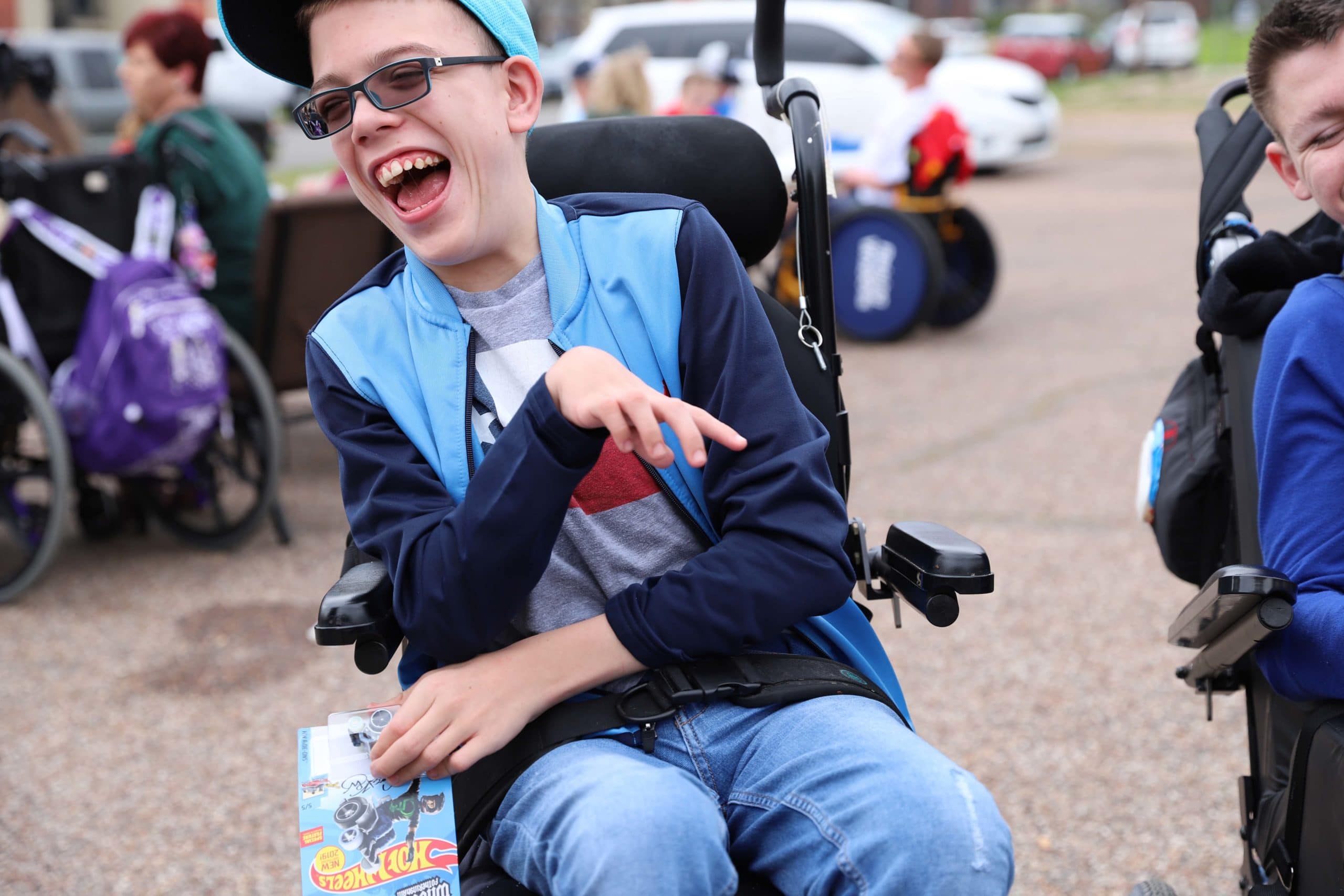
Our second initiative focuses on universal community spaces. We open up the dialogue about the need for more universal design in public areas especially for those that are differently abled. We partner with schools, churches, businesses, and other organizations to encourage the installation of universal changing areas in public buildings and centers. We do the most advocating in this initiative because it is almost non-existent in the community. Through our personal experience, we have come to realize that families will not travel more than 30 to 60 miles from their homes because there are no proper changing spaces or restrooms to accommodate all abilities.
The third initiative we're most excited about is our Accessibility Grant Program. We are a monetary resource for families to help them obtain equipment their insurance will not provide. We awarded two Life Assist Table grants in our first year, and we're doubling that this year. Life Assist Tables are what we’ve coined adult changing tables and is something we are very passionate about.
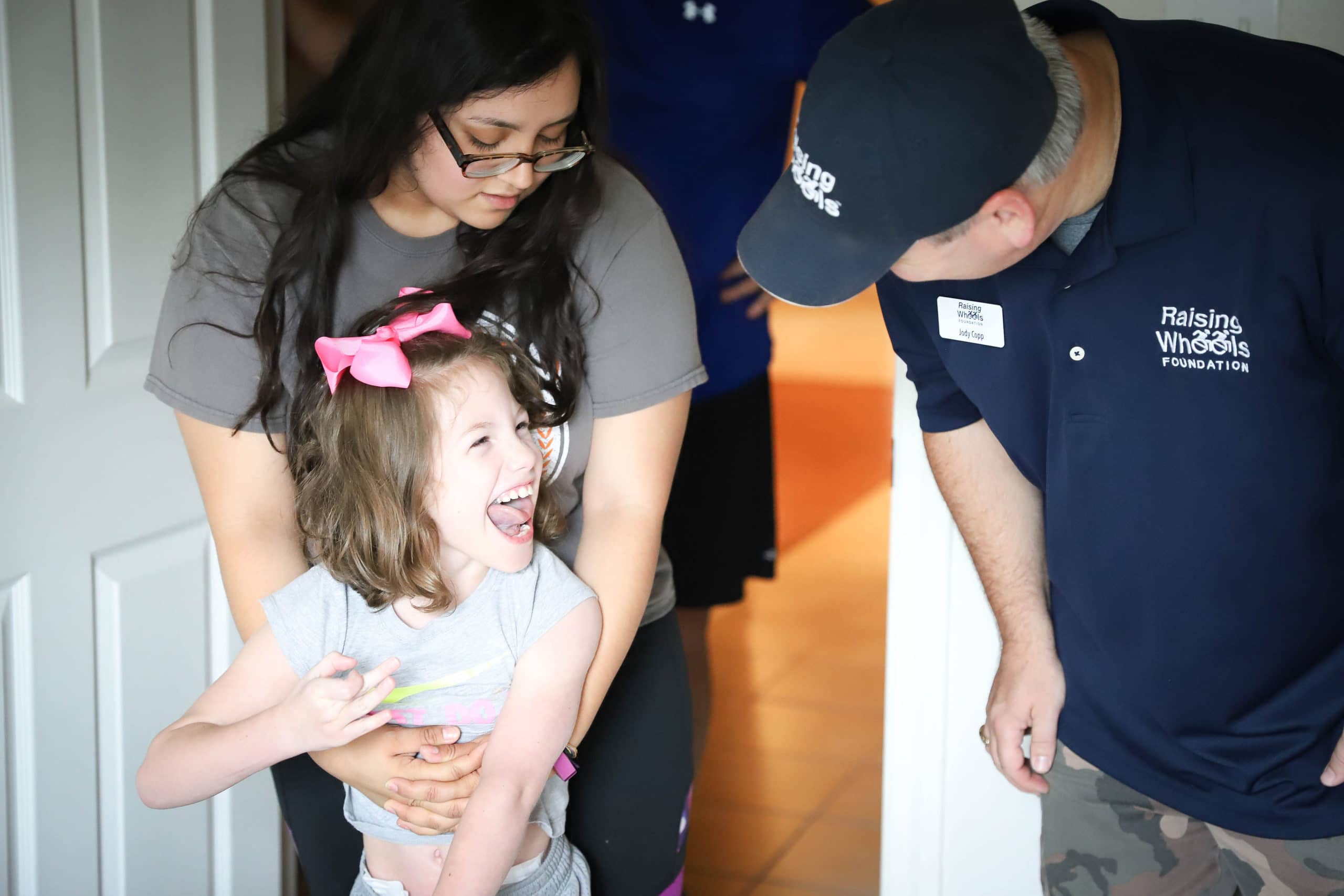
I do have a full-time job, but because I love helping others and feel so passionate about our mission, I devote a lot of my spare time to the foundation. I know families are waiting for help, and that's my driving force for doing this.
The kids are a huge part of the Raising Wheels Foundation. They talk about the mission to anybody who will listen. They enjoy helping us because they see that our passion is true and real. You will find them with us speaking at presentations, expos, and events we host in the community.
My husband Jody works for the foundation full time as an unpaid volunteer. He's our operations manager and treasurer. I usually have the vision, and he helps me make it happen. He's the driving force behind the execution and keeps us organized.
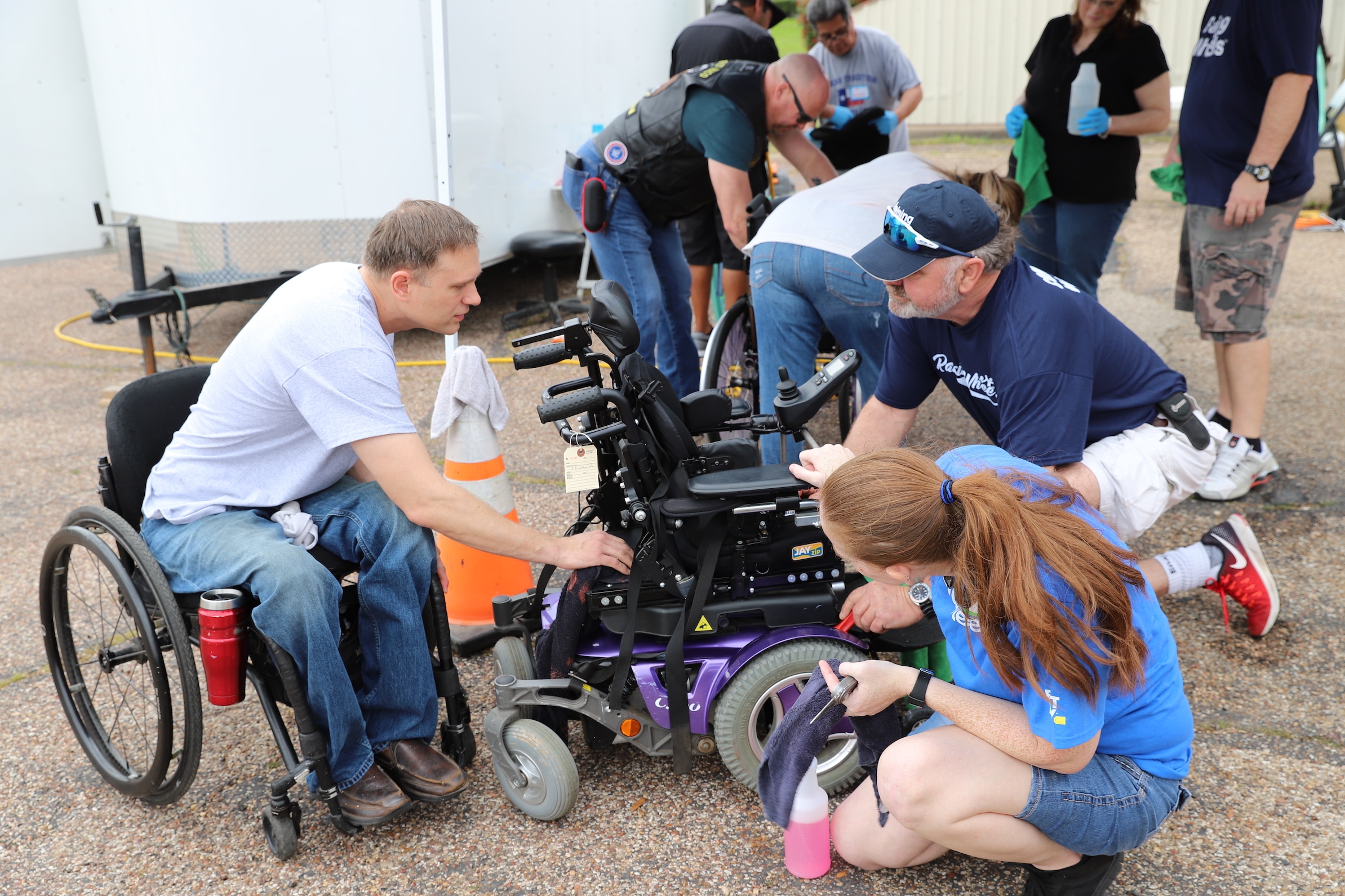
One of my favorite events is our Wash ‘N Roll. We get tons of volunteers to help wash wheelchairs. It's one of those moments where you look back and realize that all the hard work is worth it. I get to see parents beside themselves because their child's wheelchair got washed. It’s a simple thing, and yet, they’re so appreciative of the fact that their child has a clean wheelchair because that's always the last item on the to-do list. While we clean the wheelchairs, we feed and entertain the kids. The Wash ‘N Roll has become a staple event for us, and we do it every spring.
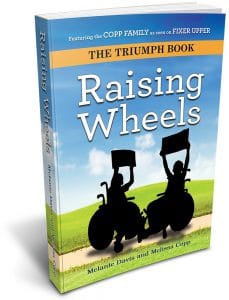 I met author Melanie Davis at an Abilities Expo back in 2016. When we connected, she had this lightbulb moment that our story should be told. This was years before Fixer Upper. After the show, the book Melanie and I had envisioned finally came to fruition. It’s a collection of stories I helped curate about overcoming tragedy and triumphing over difficulties. The stories are about families who are raising differently abled children and adults who are living successful lives on wheels. It's a mix of both so that readers can see what it's like to raise a child on wheels and how that child can grow into an independent and successful adult. It's a very powerful book, and I'm so proud of it. I know it will resonate with so many people and hopefully provide comfort to those needing it the most.
I met author Melanie Davis at an Abilities Expo back in 2016. When we connected, she had this lightbulb moment that our story should be told. This was years before Fixer Upper. After the show, the book Melanie and I had envisioned finally came to fruition. It’s a collection of stories I helped curate about overcoming tragedy and triumphing over difficulties. The stories are about families who are raising differently abled children and adults who are living successful lives on wheels. It's a mix of both so that readers can see what it's like to raise a child on wheels and how that child can grow into an independent and successful adult. It's a very powerful book, and I'm so proud of it. I know it will resonate with so many people and hopefully provide comfort to those needing it the most.
Editor’s Note: The Triumph Book — Raising Wheels can be purchased on the Raising Wheels Foundation website. All proceeds go to the Raising Wheels Foundation.
My number one resource has been other parents. You'll use professionals for the medical side, but you need a support system. Start gathering up emotional, physical, and monetary support as well as caregiver relief. You'll need to tackle this intense journey head-on with those four things. For monetary support, know that nothing is impossible. I found out quickly that you don't get what you don't ask for.
You already have yourself to worry about, and now you also have a medically fragile child to raise. Your number one goal should be to let other people help you raise the needed funds. There are resources out there, but you have to do the legwork to find them.
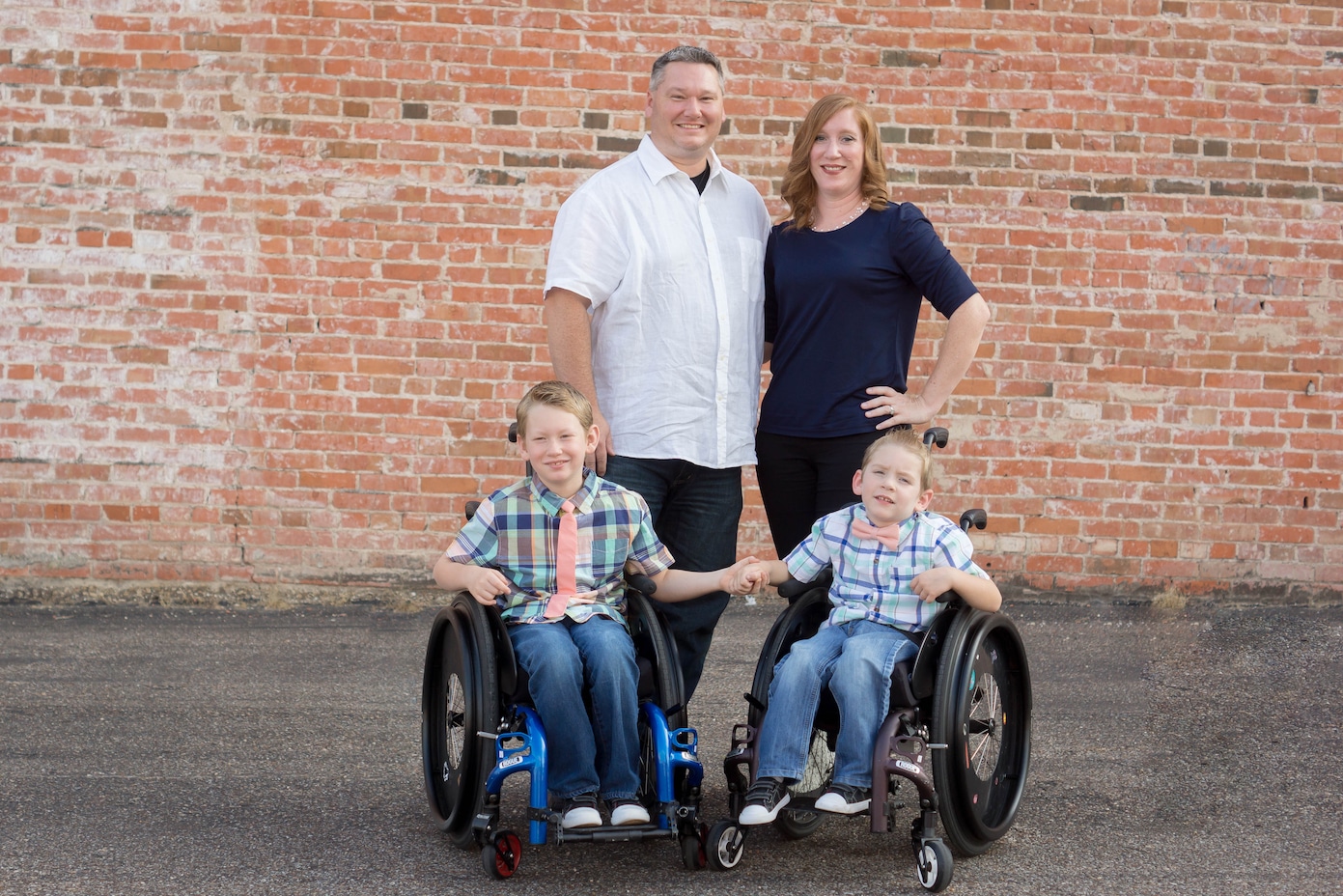
Editor’s Note: If you’re looking for support in or near Waco, Texas, reach out to the Raising Wheels Foundation.
Watch the Copp Family Fixer Upper episode (season 5, episode 10) on your cable provider’s On Demand service or Apple TV.
All information in this article was extracted from an interview and email communication with Melissa Copp. It has been lightly edited for clarity and length.
About the Author
Betsy Bailey has a diverse background that includes experience in travel and culinary writing, business operations, marketing research, and playing volleyball professionally overseas.
Betsy has been writing for Wheel:Life since January of 2017 and thoroughly enjoys the process of getting to know her interviewees. She also enjoys a good vegan brunch, practices parkour, speaks French fluently, and travels any chance she gets!
A great story, as a polio survivor I understand the parents concerns. My parents ran out of money 2 months after i was hospitalized, and the polio foundation came to their rescue. Now after 68 years I still feel thankful.